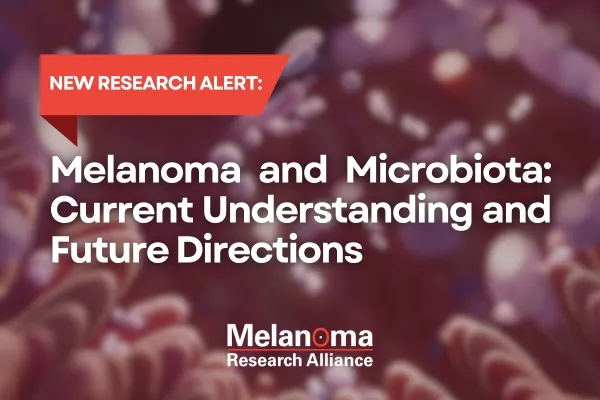
A perspective article summarizing the field’s current knowledge on how the gut microbiota affects melanoma response to immunotherapy, and how this knowledge can be used to improve patient outcomes was recently published in the journal Cancer Cell.
We all have trillions of microorganisms that live throughout our bodies—including in our gastrointestinal tract and on our skin. This ecosystem of microorganisms is called the microbiota. Researchers have recently discovered that the composition of our gut microbiota may influence numerous diseases, such as depression, autism, and even obesity. Because so many other diseases are linked to changes in the microbiota, researchers are also studying its role in melanoma and how it may affect how people respond to immunotherapy and other treatments.
The article is based on a March 2023 workshop jointly convened by the Melanoma Research Alliance and the Seerave Foundation. The workshop brought together experts in microbiology, immunology, computational biology, and oncology to explore the current state of the field, identify unanswered questions, and to explore how to move the field forward.
The review covers the following topics:
The review concludes that the gut microbiota is a promising target to improve the efficacy and safety of immunotherapy for patients with melanoma, and that more research is needed to unravel the complex relationship between patient, microbiota, and immunotherapy response and to translate these findings into clinical practice.
The full review article is available at Cancer Cell.